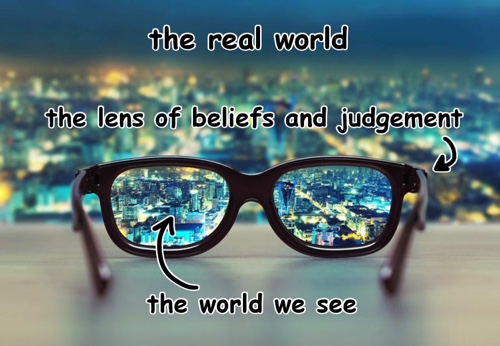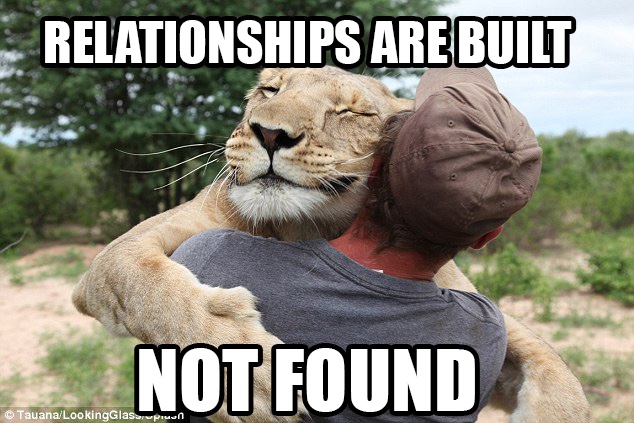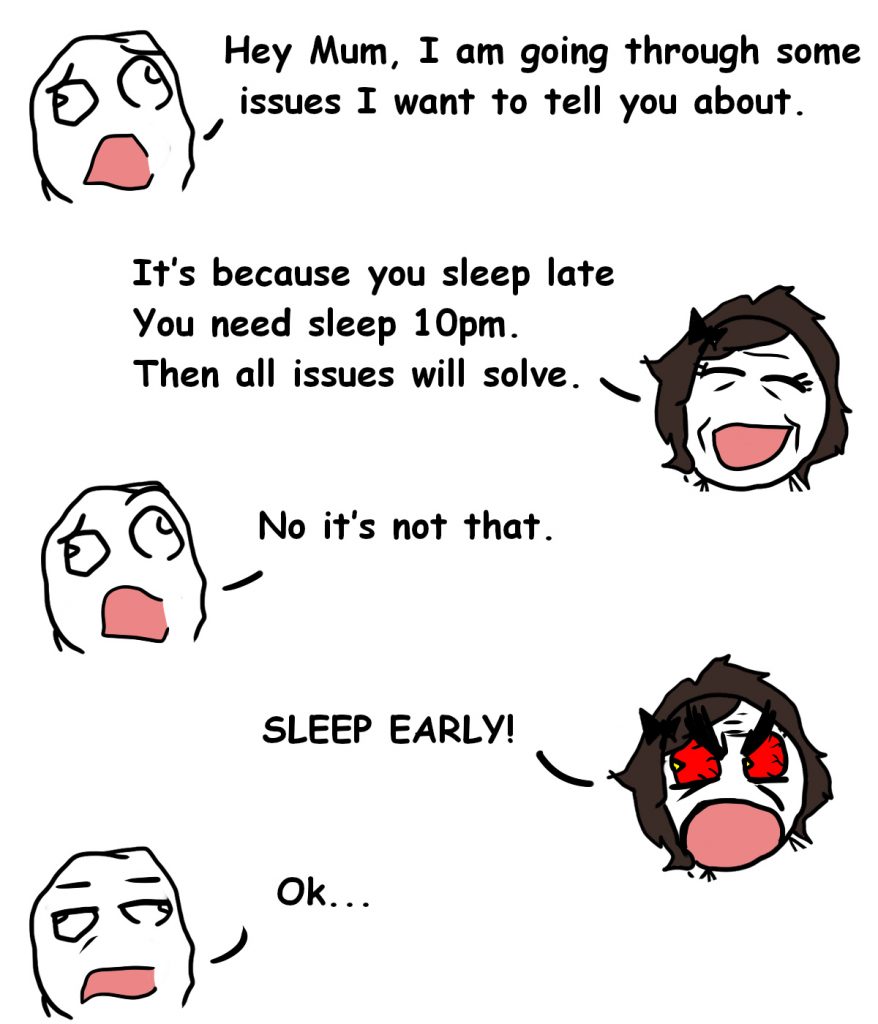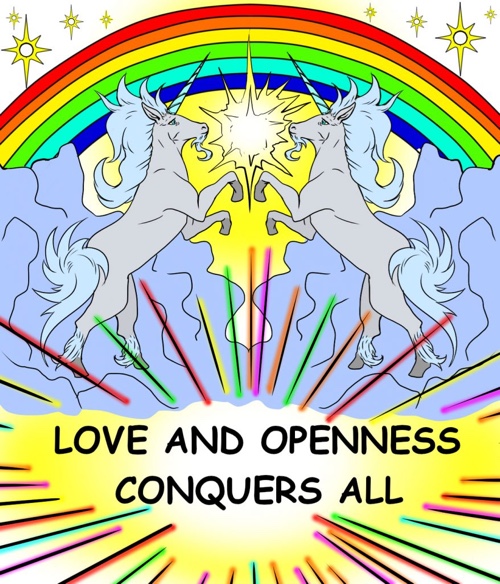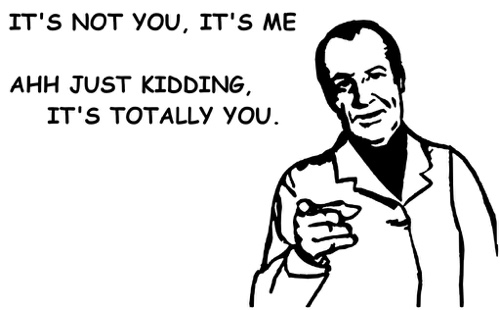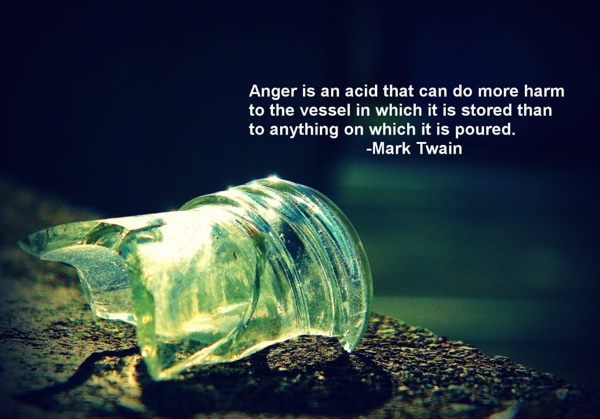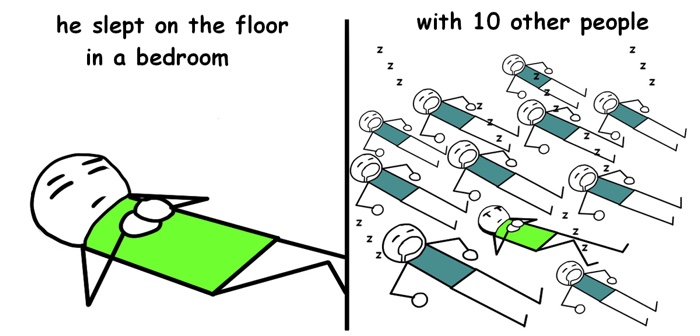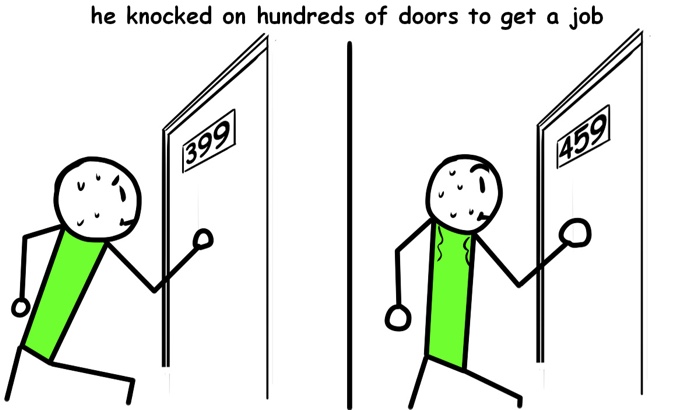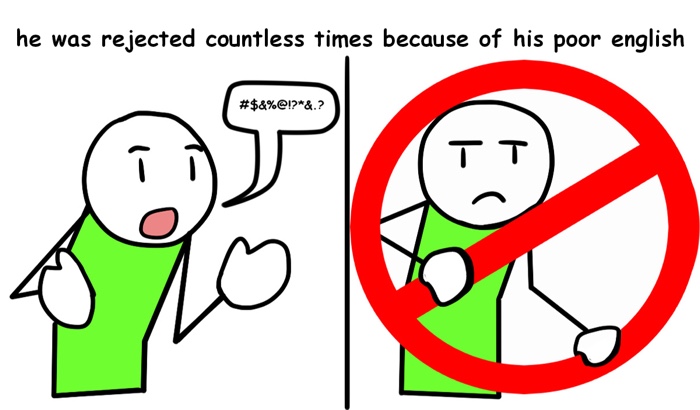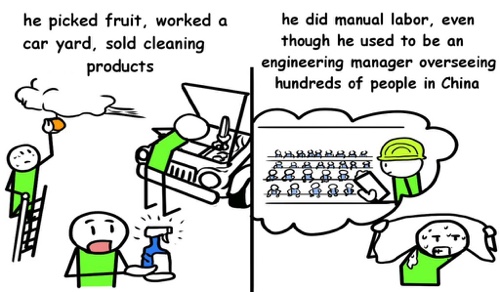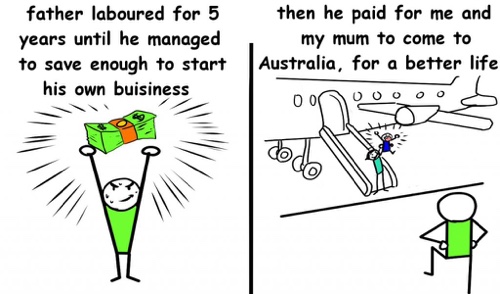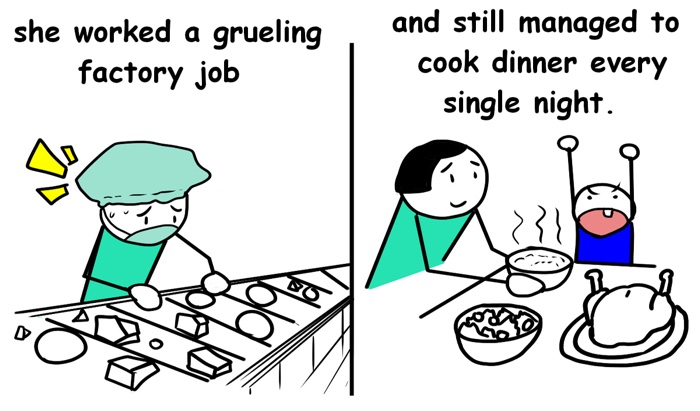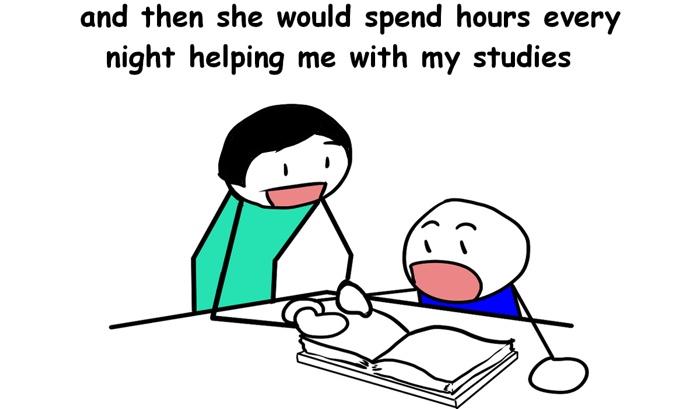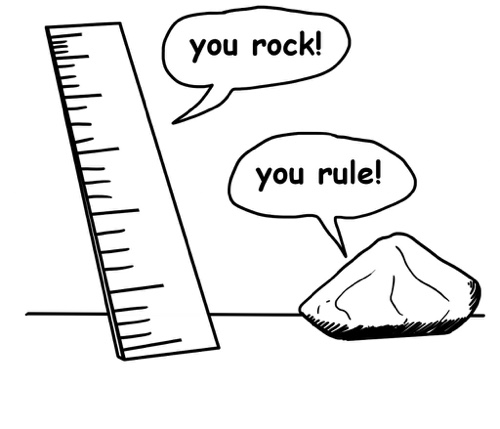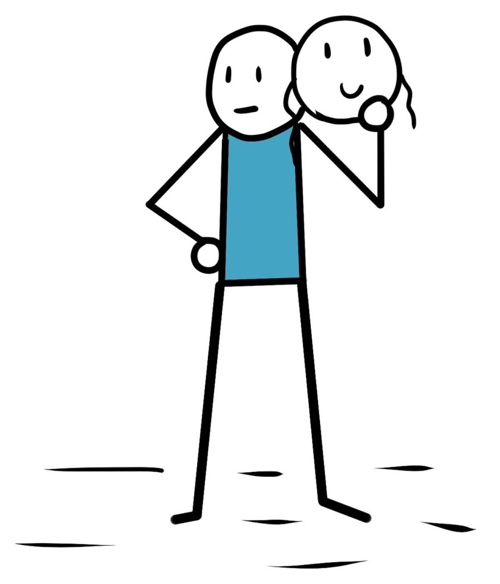After having conversations like this, I was able to build deeper and healthier relationships between my friends and I. We broke down barriers, made it ok to be vulnerable, and cared deeply for each other. We talked about our goals and life experiences, and learned from each other. We kept each other accountable and pushed each other to achieve more.
Why do people not talk to each other more?
Why is it not ok to talk to strangers? Why are churches one of the only places you can talk openly about life issues? What about if you’re not religious? Too bad.
Then there are fringe groups like Alcoholics Anonymous where people can talk about their problems. Why are they anonymous? Is it a sin to be openly vulnerable? Why do I have to be an alcoholic to join this group?
Why is there no group in society where people can come together to talk about life? About their values, goals, and problems? And to learn from each other?
For me at least, when I think about it, I am closed off because:
I am lazy and afraid
I am lazy. I am comfortable right now. Comfortable doing nothing.
It takes effort to call up friends – to make the first move. I have to put my personality on the line. I risk being rejected. I am afraid. Afraid of being judged. Afraid of not being accepted.
Everyone wants to share, everyone wants connection. But we’re afraid to share because we’re afraid we will be judged. And everyone judges everyone else. So nobody shares.
We're all judgmental
Our beliefs and judgments shape our reality. Our beliefs are like lenses that distort and edit the world we see.
Did you know we register less than 1% of our sensory input? For example: stop reading right now and listen to the sounds around you.
…
…
…
What did you hear?
You probably noticed several background noises that you weren’t aware of before.
What we’re consciously aware of is determined by our language, past experiences, judgments and biases. We’re not just perceiving the world, we’re creating it by what we distort, edit and delete from our sensory input. We’re judging all the time.
I am judgmental towards new people
Whenever I meet someone new, within 30 seconds I’ll subconsciously decide if I like their energy or not. It’s so subtle. I don’t even notice that I am judging people. But if I don’t like a person’s energy, I will shut myself off. I’ll pretend to listen, give one word replies, and find a way to excuse myself. Whatever the person is saying will become background noise – it’s not important so my brain filters it out.
For example, I’m walking around my neighborhood the other day, and my neighbor Peter is on his driveway cleaning his boat. Peter’s old and likes to ramble on.
I tune out, and excuse myself as soon as possible.
Other times I’ll tune out because the person is too aggressive, or it might be because I’m talking to someone with a foreign accent. Immediately I’d assume that this person is different from me – I won’t be able to get along with them. How is it that I can reject someone when I’ve only met them for 30 seconds? I don’t really know them. They could be a wonderful person. I will never know.
I want to be less judgmental, so I enroll in this personal development seminar (called Landmark) which focuses on practicing open communication.
At the seminar I meet Margaret, a retiree who rambles. I listen to Margaret despite her rambling. I have no interest in what Margaret is saying initially, but as I keep listening, I realize she’s been through 2 marriages, raised a family and had grandchildren. She has 70 years of life experience. And I learn so much from her about life, love and family.
I also meet Manuel at the seminar. Manuel’s English isn’t so great. It takes longer to communicate, but I learn what it is like to grow up in Spain, and I’m amazed by how similar our core values are, even though we grew up on opposite sides of the world.
These are people who I would’ve previously brushed off because of my prejudices. But they’re wonderful people I can have a rich and healthy relationship with and learn a lot from.
We’re scared of putting our personalities out there so:
We reject others before they can reject us
We use our judgments as a shield to hide our personalities. We get to feel superior and self righteous – oh look at me, nobody meets my high standards.
But we lose out on so much when we let our judgments keep us apart from people. We feel lonely, lose connection, and miss out on many beautiful relationships.
I am judgmental towards friends
I want friends who are intelligent and purposeful – people I can learn from. At the same time they have to be bubbly, fun loving, light hearted, open minded – people I can laugh and have fun with.
I am always judging all my friends against these standards, and none of them meet them. Karen is really smart but too serious. Tom’s fun to be around but not very smart. Marvin is very successful career wise but really judgmental. I have all these excuses to keep myself from connecting with my friends.
I am always searching – searching for someone who will meet my standards for a perfect connection and rejecting my current friends. Because of this I am missing out on deepening the relationships I have right now.
I am missing the point. Nobody will understand me, nobody will be a perfect match for me or my bullshit standards. But the point isn’t to find a perfect match. The value of a relationship is in the depth, the shared experiences and mutual understanding that are built up over time.
I start to accept that my current friends are a close enough match to me. If I put aside my judgments and focus on opening up and deepening my relationships with them, that is where the real richness lies.
I am judgmental toward my parents
I tell myself that my parents can never understand me because they grew up in a different country and have different values. Here’s how conversations go with my parents:
When I talk with my parents they always criticize me. They never listen. They’re always preaching. Because of all these reasons I can’t have a healthy relationship with them. By believing these things, I get to be right. I don’t need to question my own actions. It’s all my parents’ fault.
We can’t change how people are going to act, but we can choose how we react. My parents may criticize, nag and preach. But I can choose how I want to respond. Do I respond with anger and close off, or show love and openness?
Is a healthy relationship with my parents worth it despite the negatives? The answer for me is yes. I want to be close with my parents, so I am choosing to make time to talk to them, to be patient with them and respond to their criticisms with love and openness. Love and openness is the most rewarding choice for me.
We are responsible for our feelings
Regardless of how people treat us nobody can make us happy angry or sad. We make ourselves happy. We make ourselves angry. We choose how we react. When we give responsibility for our feelings to someone else we become powerless. We always have the power to be loving and open regardless of external circumstances.
Now we can’t always control our emotions. Sometimes we can’t help getting angry, and that’s ok, we can let our feelings be (refer to self acceptance & social anxiety article for more details). Even if we can’t control our emotions, we are responsible for them. We should never blame others for how we feel.
When people offend us, we should not take it personally
When someone insults us it is about them and their problems – it is not about us. The emotional issues that they’re dealing with have led them to take their frustrations out on us.
Would a person who is at peace go around insulting people? No, they would kindly let us know what we did wrong and then point out ways we can improve.
Only an angry person would insult us. They would attack us even when we’ve done nothing wrong. Because the angry person’s insults are a reflection of their angry emotions, the insults are not a reflection of us.
We’re so caught up in what other people think about us when nobody gives a shit. People are too busy thinking about themselves.
Forgive people, because holding onto resentment only harms ourselves
People may not always deserve forgiveness, but holding onto resentment is like taking poison and waiting for your enemies to die. Resentment only tortures ourselves.
So, my company website gets hacked one day. The hacker steals my email list and sends hardcore pornography to my customers in an attempt to destroy my brand. I lose tens of thousands of dollars in business.
I find out through a friend who this hacker is. And I’m pissed. I want to destroy this guy and everything he loves. I plot my revenge. I think about all the ways I can screw him over. The more I plot the angrier I get. My mum talks to me, and I don’t hear her, because I am too caught up in my brooding. After a few hours of this, I think to myself:
What is the point of putting myself into a shitty mood? I am only prolonging my suffering.
Does screwing this guy over actually achieve anything? No. I should just focus on fixing my website.
And I kind of get it. This hacker guy and I were both romantically involved with the same girl. Jealousy flared, things got complicated. We’re only human.
Eventually we learn to accept people just the way they are
Humans have light and dark. We can be angry, or stupid, or cruel, and also loving, and kind, and wise. We need to accept all parts of our personalities because we’re just human. You, me, all humans share the same consciousness.
Love is when we see ourselves in others, accept that no one is perfect, and learn to love them regardless.
So with my parents. Sure, they nag, they criticize. But they raised me to be who I am today.
I am grateful for everything my parents have done for me and I love them very much.
We can connect with anyone and work through any fight or disagreement if we just stay open and respond with love.
How to work through any fight or disagreement
1. Make the person feel safe
Tell the person that you care about them, and that you respect their opinions.
Find a mutual purpose. Tell the person that you’re going to have a difficult conversation with them, but the purpose of the conversation is so you can work out your differences and have a stronger relationship – something that you both want.
When people have mutual respect and purpose, they can relax and absorb what you’re saying.
2. Be specific with your criticisms
Vague criticisms are hard to address because the person may not be sure what we’re referring to. Specific feedback allows people to easily identify and change whatever is being addressed.
Criticize actions but do not attack the person. For example, we can tell someone that the report they made was crap, but should not call them a stupid person. When we’re talking about emotionally charged topics, it’s easy to get angry, and shift from talking to attacking the other person.
The moment we lose mutual respect, people no longer feel safe and cannot dialogue. When we get angry, we need to go back to making the person feel loved and safe, and reaffirming a mutual purpose, before we can continue.
3. Separate facts from opinion
Start by stating facts first – i.e what was seen or heard. A hotel receipt is a fact – the husband having an affair is only opinion at this stage. Facts are a safe place to start because it’s a shared place of agreement.
Having agreed on the facts, we can tell the story that we have created. Our story is not a fact. We want to state our story as a hypothesis. We do not want to state our story with the vigor and certainty of a fact.
We need to pause and listen to the other side tell their story and interpretation of the facts. The key is to understand other potential meanings that can be drawn from the same facts and construct a bigger, shared story.
4. Be prepared to be wrong
In every situation no one is 100% right or 100% wrong. There are things both sides could improve. Ask yourself. What did I do that led to this conflict? How could I have approached this situation better?
Listen closely to criticisms and reflect on what is being said.
If you’re right, great, you don’t have to change. Just because somebody doesn’t like what you’re doing doesn’t mean you need to change.
But if you discover something you can improve on, great, you’ve learnt something.
Don’t be afraid of being wrong. Sure you have to give up your good opinion of yourself. But it’s short term pain. You face the pain today, so you can improve for a better tomorrow.
5. Be candid
Share all of your thoughts and feelings. All information needs to be out in the open so other people can fully understand us.
We often avoid having difficult conversations, we hold things inside and go silent, until we can take it no longer, then we explode and start attacking others. Nobody can understand our story if we’re silent, or if we’re attacking them.
6. Be yourself
When we’re really honest, other people trust us. If we put on a phony behavior in order to please people, they may love our behavior, but they cannot love us because we’ve hidden our real selves behind this artificial behavior.
Even if others love our phony behavior, we cannot receive their love. It is poisoned by the knowledge that the love is for the image we’ve created, not for ourselves. We have to continually be on guard and maintain our image so that we continue to be loved.
During university, I was memorizing pickup lines in order to impress girls. Conversation starters like:
The girls would like me at first. But the problem is I could only memorize so many lines. After the first date I’d run out of things to say. The girls would be weirded out because initially I’d been the funny gossip man, then I’d turn into this shy, nerdy kid who liked talking about philosophy.
By hiding behind these pick up lines, I never had to develop my personality. People didn’t get to know me for me. So I decided to drop the pick up lines.
It’s better to be hated being yourself than to be loved being someone else. So always be yourself when you’re working through a fight or disagreement with someone.
7. Devise an action plan
We need to take action or all the talk would be for nothing. Define what needs to be done and by what date, and agree on how to follow up and be accountable.
Speaking of action plan, take a minute to:
Think about someone in your life that you’ve been closed off to
Pick up the phone right now – call them.
Let them know that you care about them, and would like to spend more time with them. Let them know that you will be there for them. And that if they are ever going through any problems they can call you anytime and you’ll be there to listen.
Say whatever you need to say. Say it in your own words. Dare to be open, to be vulnerable, to be real. That’s the foundation of any healthy relationship.



